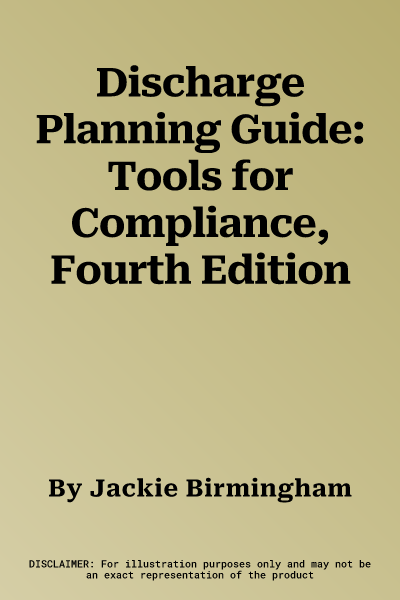Discharge planning has long been a challenge for organizations, but
expected revisions to Medicare's Conditions of Participation(CoP) will
increase the burden on healthcare facilities, especially in case
management departments, by expanding the number and type of discharge
plans that must be created. Discharge Planning Guide: Tools for
Compliance, Fourth Edition, is a comprehensive resource on the
changes to the CoPs, which are set to revamp discharge planning not
just for hospitals, but for postacute providers as well.
This book provides guidance on developing a discharge planning workflow
during a time when hospitals must create discharge plans for a larger
percentage of patients than ever. Essential functions of discharge
planning, including patient choice, health literacy, communicating with
caregivers, and delivery of notices, are presented in a clear and
concise format. The book also covers the connection between discharge
planning and the revenue cycle, including payment rules, billing and
coding implications, and the appropriate use of several claims forms and
condition codes.
This book will help you:
State the purposes of the Social Security Act, the Conditions of
Participation and Conditions for Coverage (CoP/CfC), and the
Interpretive Guidelines as each relates to discharge planning
Identify sections of the CoPs for discharge planning that relate to
discharge instructions
Explain how utilization review, discharge planning, and case management
interface with transition management
Describe steps in monitoring the progress of a patient's discharge
plan
Describe the effect of the discharge planning process efficiency scores
and preventable readmission
Describe when to use the Medicare Outpatient Observation Notice (MOON)
according to the Notice of Observation Treatment and Implication for
Care Eligibility (NOTICE) Act for observation patients
Discuss payment rules that affect discharge planning
Describe types of discharges and transfers from acute care hospitals,
critical access hospitals, skilled nursing facilities, and home health
agencies
Outline provisions of the Improving Medicare Post-Acute Care
Transformation (IMPACT) Act of 2014
Discuss the revenue cycle implications discharge planning has for
hospitals

